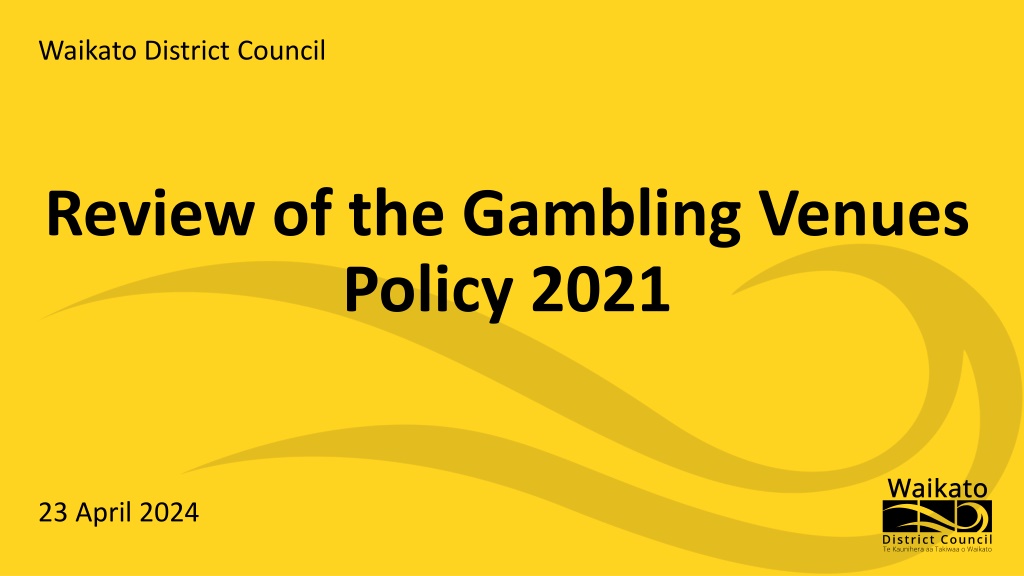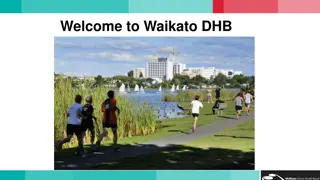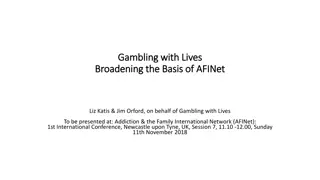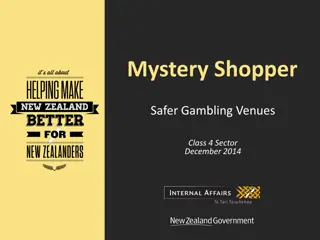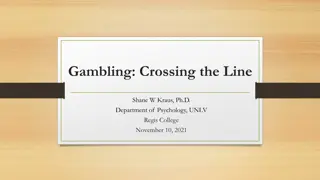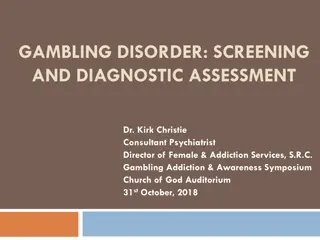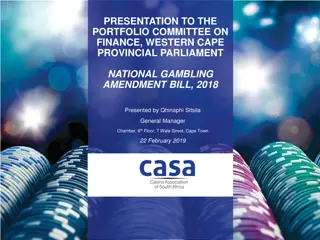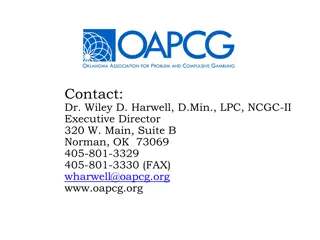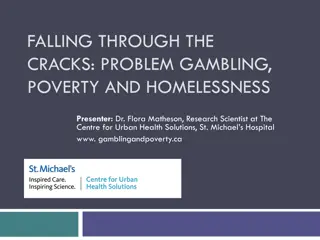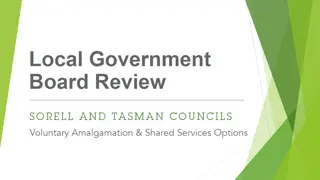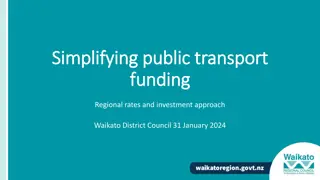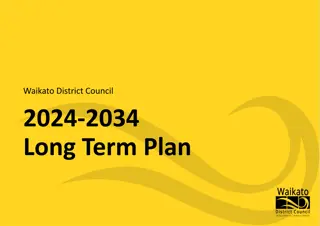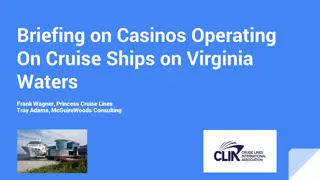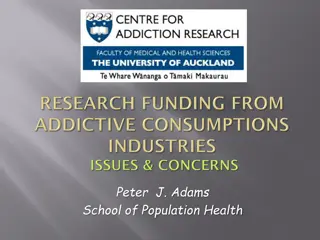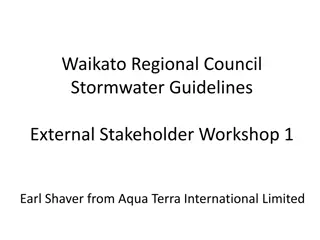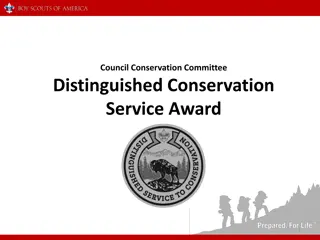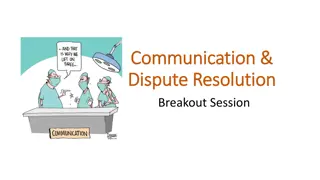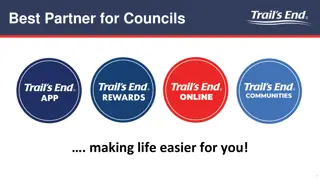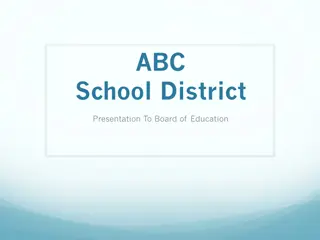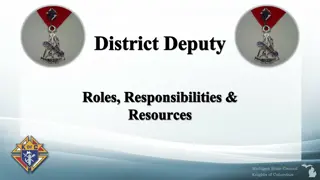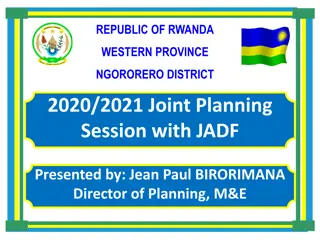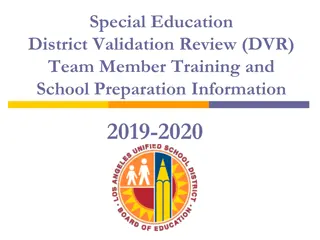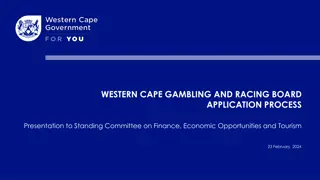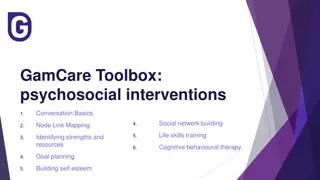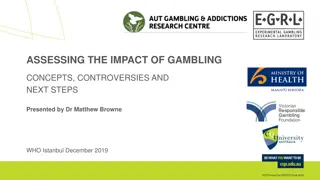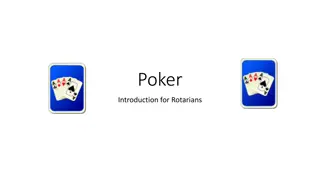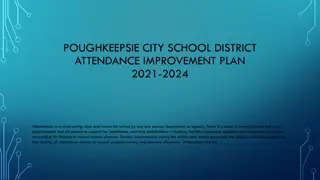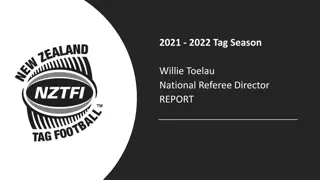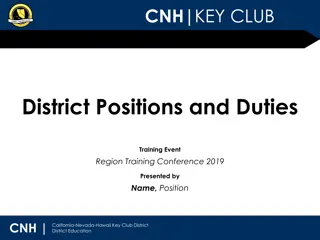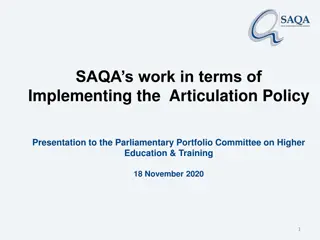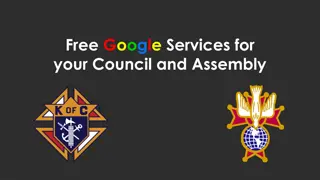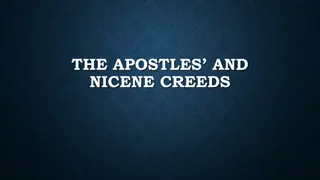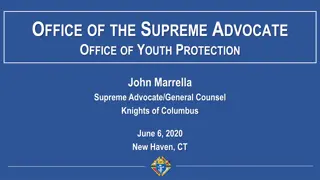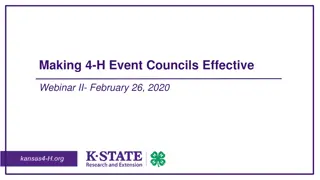Review of Waikato District Council's Gambling Venues Policy 2021
This document presents the review of Waikato District Council's Gambling Venues Policy for 2021, discussing regulations on Class 4 gambling venues, TAB venues, comparisons with other council policies, and a spend comparison. The policy specifies the maximum number of gaming machines per venue, rules for relocations and mergers, and the discretion for establishing TAB venues. Additionally, it compares the policy with other district councils' approaches and highlights the average spend on Class 4 gambling per person in different districts.
Download Presentation

Please find below an Image/Link to download the presentation.
The content on the website is provided AS IS for your information and personal use only. It may not be sold, licensed, or shared on other websites without obtaining consent from the author. Download presentation by click this link. If you encounter any issues during the download, it is possible that the publisher has removed the file from their server.
E N D
Presentation Transcript
Waikato District Council Review of the Gambling Venues Policy 2021 23 April 2024
Purpose of Workshop 1. Provide information on and seek feedback from Council on the review of the Gambling Venues Policy 2021.
Background Council must adopt a policy on Class 4 Gambling. Class 4 Gambling is pokies and slot machines. Council must also adopt a policy on standalone venues TABs. The policy is made under the Gambling Act 2003 and Racing Industry Act 2020.
Class 4 Gambling Venues policy No further class 4 venues. Sinking lid policy. Maximum number of gaming machines per venue is nine. NB: This max applied from Sept 2003, premises registered before then could have up to 18 machines. Merging of two venues with class 4 licenses is allowed. Total number of machines must be five-sixths the combined number of two class 4 licenses. Maximum number is 18 when merging. Relocation is supported if improvements are for the purposes of the primary venue activity.
TAB Venues Policy Council will consider applications to establish TAB venues. Council has discretion. Only permitted in zones which allow commercial activities.
How has this policy been applied? Gambling Venues Policy No applications for relocations or merger. TAB venues policy No applications for standalone TABs. No standalone TABs in the Waikato currently. Rarely used policy.
How does our policy compare? Review of: 1. Waikato District Council 2. Waipa District Council 3. Matamata-Piako District Council 4. Hauraki District Council 5. Hamilton City Council 6. Auckland Council 7. Thames-Coromandel District Council Policy Comparison Sinking Lid Policy Yes, for 4/7 policies Caps on maximum number of machines Yes, for 4/7 polices Relocations (with conditions) Yes, for 5/7 policies Mergers permitted Yes, for 6/7 policies
Class 4 Gambling Spend Comparison Council Average spend per person in 2023 $122 Waikato District $154 Hamilton City $169 Waipa District $180 Auckland $194 Matamata-Piako District $268 Hauraki District $358 Thames-Coromandel District
Social impact of Gambling Expenditure: $9.8 million spent in 2019 10.834 spent in 2023 $2.3 to $2.6 billion spent per year in NZ Legal requirement. The number of venues and machines has decreased slightly. 2021 2024 Number of Class 4 venues 18 17 Number of Class 4 machines 233 227
Social benefits of Gambling Entertainment, social interaction and employment. In 2022, grants totalling $3,426,232 were made in the Waikato District. $1,942,260 granted to sport in 2022.
Social costs of Gambling Problem gambling. 4.5% of New Zealand experience gambling harm. 12 out of the 17 venues are located within areas with a deprivation index of 9. Maaori, Pacific peoples, and people on lower incomes continue to disproportionately experience gambling harm. Initiatives in place to support and manage gambling harm.
Options 1. No changes to the Policy (recommended by staff). 2. Amend Policy, moving to a capped machine policy, rather than a sinking lid, and retain the existing relocation clauses in the new policy. 3. Amend the Policy, by moving to a gold-standard sinking lid approach removing the merger and relocation clauses.
Next steps 18 June Policy and Regulatory Committee: Approval to consult June / July 2024: Consultation September 2024: Hearings and deliberations October 2024: Adoption
